It's privately owned, so it doesn't have the same cachet or connection with the community so that there wasn't a massive public response about the fire. I don't think the Post even ran a story about the fire. If it did I missed it.
I found out from a email query and an editorial in the
Washington Post, "
More mischief from Harry Thomas," excoriating Councilman Harry Thomas for putting forward legislation giving the property owner a $5 million tax abatement to help speed reconstruction. (Also see "
Capital City Market recovers from a bad week" from the
Post Capital Business blog.)
Now I am not a fan of Harry Thomas, but despite his general ethical issues, the real problem wasn't his ethics--doing the bidding for a business based in his ward--and the legislation's intent so much as the "write legislation first, think second" inclination of members of the City Council generally.
Councilmembers think if they write a law that it's a good idea and when they pass it they think they create substantive change. Usually their laws are under-thought, address a wee bit of the issue, and are overly complicated/convoluted but at the same time infuriatingly simple.
You can understand why Councilman Thomas would strike up this initiative, given that it is a "public market" type building, albeit serving a lower income demographic compared to Eastern Market (but privately owned), considering that when Eastern Market, publicly-owned, burned in April 2007, the city and community responded immediately, with funding for vendors to open up temporary stands first on the street, then in a temporary building, and the City spent $20+ million to restore the building after the fire.
Eastern Market post-fire. Note that the walls easily withstood the fire because when the building was constructed, in the 1870s it was typical to "over-engineer" walls compared to today's standards. In this photo you can see the impact of the fire on the roof. Flickr photo by act.design.
The thing about the fire at Union Market is that it complicates an already complicated situation.
But it might speed forward redevelopment of the section that Edens & Avant, a large shopping center developer and manager, owns, faster than would normally have happened.
Much of the market is in play for some sort of redevelopment, as I have been writing about for more than 6 years.
The fire creates an opportunity to rebuild, but better, not merely to replace the building with another cinder block building.
So it's better for E&A to simultaneously think long term and short term, in a way that Thomas' legislation, a $5 million tax abatement, is incapable of, as it is not an action that is able to be fine-tuned.
In the short run, a temporary market setup could be created so that the market could go on in the interim, and that's the kind of initiative that Councilman Thomas could have sparked, had he possessed the imagination to do so.
a. Although it's by now already sold in an auction, maybe DC Government could rescind the sale of the temporary Eastern Market building ("East Hall," pictured below), and truck it over to the parking lot across from the Farmers Market building at Union Market. I know it wouldn't be cheap, and that building cost a fortune to heat and cool.
That would require the purchaser to agree, as well as Gallaudet University.
And the building would still need to be outfitted with equipment, and there isn't a Capitol Hill Community Foundation and committed community there to step up and buy the equipment for the Union Market vendors like there was for Eastern Market ("
Eastern Market: More than a Building").
Top photo: A vendor operating in the post-fire interim at Union Market. Bottom photo: Gallaudet parking lot.
Top image: Demian Repucci. Middle and bottom images: Food Systems Network NYC.
Combine the temporary Eastern Market building, repurposed containers, and the Gallaudet-owned parking lot, and you have a functioning market again, if only on a "temporary" basis.
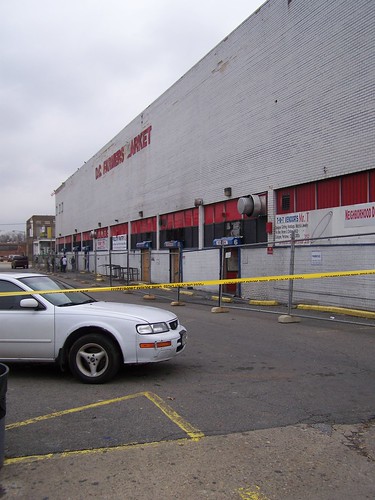
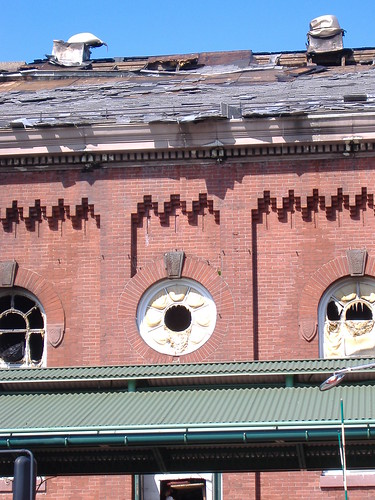
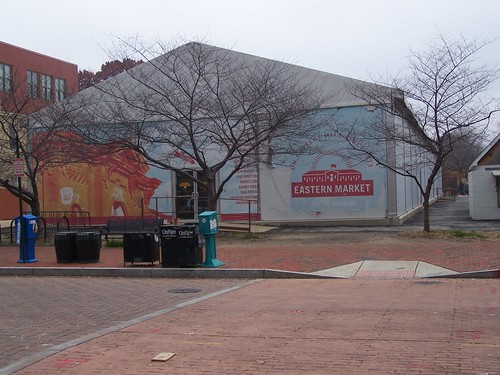
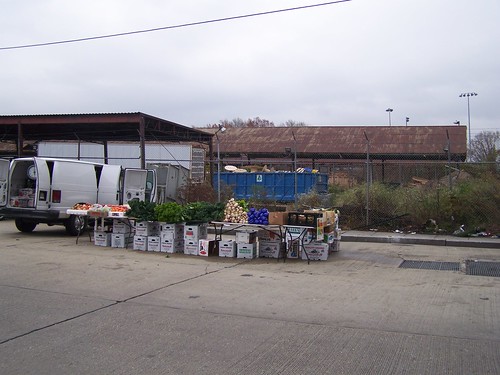
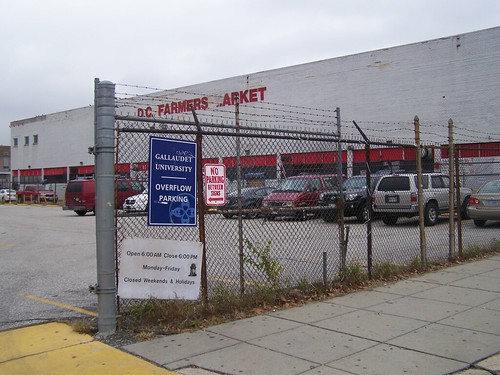
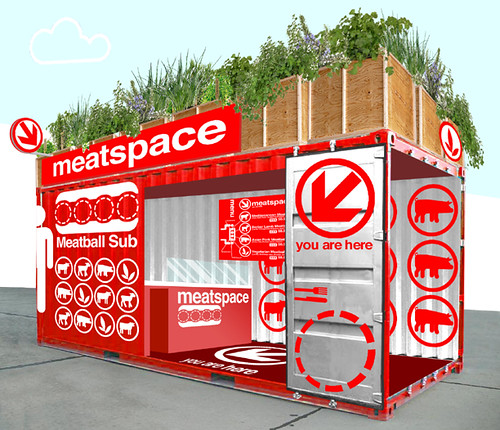
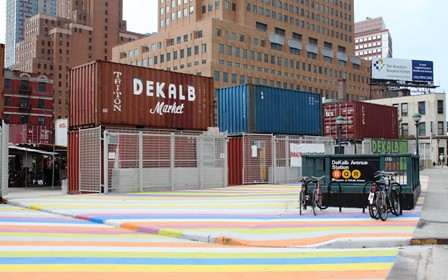

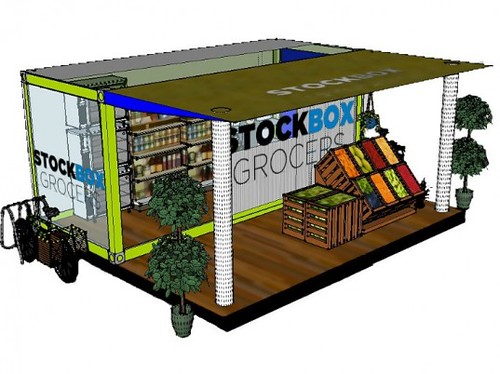



0 Comments:
Post a Comment
<< Home